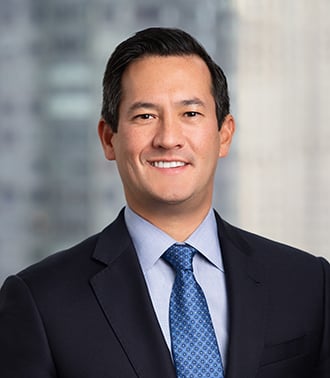No Quid Pro Quo: Judge Dismisses Campaign-Contribution Bribery Charges Against Former NY Lieutenant Governor
On December 5, 2022, the US District Court for the Southern District of New York dismissed three counts of a five-count indictment against former New York Lieutenant Governor Brian Benjamin, holding that the prosecution’s corruption charges failed to satisfy the First Amendment’s heightened standard for an alleged quid pro quo involving political contributions. US District Judge J. Paul Oetken’s decision was the latest in a recent string of federal rulings that have narrowed the enforcement options available to public corruption prosecutors.
Benjamin resigned from his position in April 2022, immediately after federal prosecutors charged him with diverting $50,000 in state funds to a charitable organization in return for bribes taking the form of campaign contributions. The indictment also accused Benjamin of lying to the New York City Campaign Finance Board about his Comptroller campaign and falsifying his executive appointment questionnaire in order to conceal the alleged bribery. The indictment included three bribery-related corruption charges—federal programs bribery, honest services wire fraud and conspiracy to commit those two offenses—and two charges of obstructing an investigation by falsifying records. Benjamin moved to dismiss the entire indictment.
In dismissing the bribery-related charges, Judge Oetken first reviewed Supreme Court case law on quid pro quo agreements in the context of campaign contributions. As the Supreme Court explained in the Hobbs Act extortion case of McCormick v. United States, an unlawful quid pro quo between a public official and a private citizen cannot be inferred simply from the fact that an official received a contribution and then took action favorable to the donor. See 500 U.S. 257, 272–73 (1991). In our privately-financed system of elections, political contributions are expressive and associative acts protected by the First Amendment, and people typically will donate to officials whom they expect to act favorably to their interests. Thus, to avoid criminalizing ordinary political conduct, corruption prosecutions involving political contributions must prove more than a chronological connection between contributions and official conduct. See id. at 272. As such, a political contribution only violates federal law if a contribution is made “in return for an explicit promise or undertaking by the official to perform or not to perform an official act.” Id. at 273.
Like the many cases that have since applied McCormick to bribery charges, Judge Oetken determined that McCormick’s First Amendment standard governed Benjamin’s bribery-related corruption charges. See Opinion and Order at 8 n.4. Judge Oetken’s decision then closely examined what constitutes an “explicit” quid pro quo under McCormick and subsequent Second Circuit precedent, ultimately relying on now-Justice Sotomayor’s explanation that “proof of an express promise is necessary when the payments are made in the form of campaign contributions.” United States v. Ganim, 510 F.3d 134, 142 (2d Cir. 2007). After considering various complexities and inconsistencies in the relevant case law, and then working through several hypothetical scenarios, Judge Oetken concluded that “for criminal liability for bribery in the context of campaign contributions,” a quid pro quo agreement requires a contemporaneous, “clear and unambiguous” mutual understanding between the public official and the payor that specific things are being exchanged for specific official actions. Opinion and Order at 23. Under the McCormick standard, an “explicit” agreement in the campaign-contribution context “cannot be satisfied by implication.” Id. at 17. The parties’ meeting of the minds need not be “stated or transcribed” but rather can be executed through explicit oral statements or conduct. Id. at 21–23.
In Benjamin’s case, the government failed to allege that he made an “explicit agreement” to receive contributions that would then control his official conduct as a state senator. Similarly, although the indictment used the phrase “in exchange for” to describe the nature and timing of Benjamin’s conduct, this language alone was insufficient to satisfy the McCormick standard because “the existence of an exchange or agreement does not necessarily imply the existence of an explicit or express agreement.” Id. at 28. Because the Government failed to charge Benjamin with an explicit quid pro quo, and because the facts of the indictment did not establish criminal liability, the Court dismissed these three counts for failure to charge an essential element. However, the Court denied Benjamin’s motion to dismiss the obstruction counts—so for now, at least, the case will go on.
Judge Oetken’s pretrial analysis—like the post-trial analysis in United States v. Menendez, 291 F. Supp. 3d 606, 623–35 (D.N.J. 2018), where Arnold & Porter helped secure the defendants’ Rule 29 acquittal on all bribery-related charges based on political contributions—reinforces and updates the requirements that the First Amendment imposes upon bribery charges involving campaign funding. More broadly, the Benjamin decision is the latest example of judicial skepticism towards the use of federal public corruption laws to pursue state-level officials, as shown by the recent Supreme Court oral argument in Percoco v. United States, 21-1158 a few weeks ago and by the Supreme Court’s opinions in Kelly v. United States in 2020 and McDonnell v. United States in 2016. Although the Government may well appeal Judge Oetken’s decision, we expect to see similar rulings in campaign-contribution and public corruption prosecutions moving forward, and we will keep you updated on any key developments here at Enforcement Edge.
* Melissa Romanovich contributed to this blog. Ms. Romanovich is a graduate of the Fordham University School of Law.
© Arnold & Porter Kaye Scholer LLP 2022 All Rights Reserved. This blog post is intended to be a general summary of the law and does not constitute legal advice. You should consult with counsel to determine applicable legal requirements in a specific fact situation.




